What happens when you combine the biblical story of Exodus with dice, cards, and a little creative chaos? According to Paul, a Grade 6 teacher, you get something extraordinary: deeper engagement, unexpected growth, and board games that turn ancient narratives into interactive learning experiences.
In this follow-up to our Board Game Series, we explore how one class took on a bold challenge—transforming ancient scripture into playable, collaborative, and surprisingly complex games. It wasn’t easy, but it was powerful.
🎤 Can you describe the goal of this project and what inspired it?
The goal was to bring the biblical story of Exodus to life for the students in a way that was meaningful, immersive, and (most importantly) fun. I’ve found that the Grade 6 Christian Education curriculum can sometimes feel very dry for students, especially when they're reading Old Testament stories without much historical context. It can be hard for them to relate to those ancient narratives. So I wanted to approach Exodus differently, moving away from worksheets and rote reading toward something hands-on and creative.
The inspiration partly came from my own experience as a student. I always found things like percentages and probability hard to grasp—until I started playing Warhammer as a teenager. Through games, I became highly motivated to understand those concepts because I needed them to win! That made me wonder: could the same idea work for other subjects, like Christian Ed? If we integrate gameplay into learning, could students engage more deeply with complex material? That’s where the idea for the board game project came from.
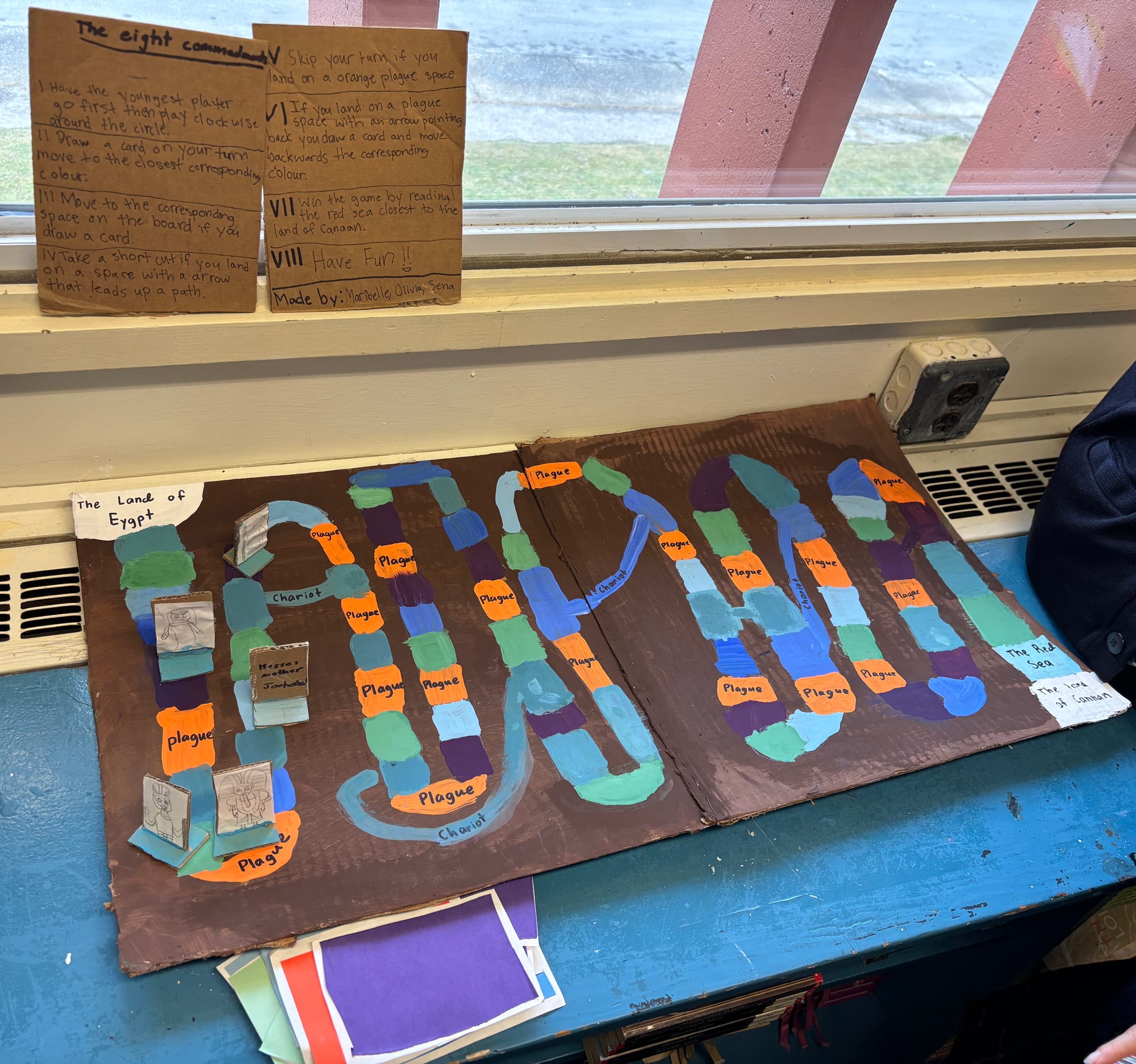
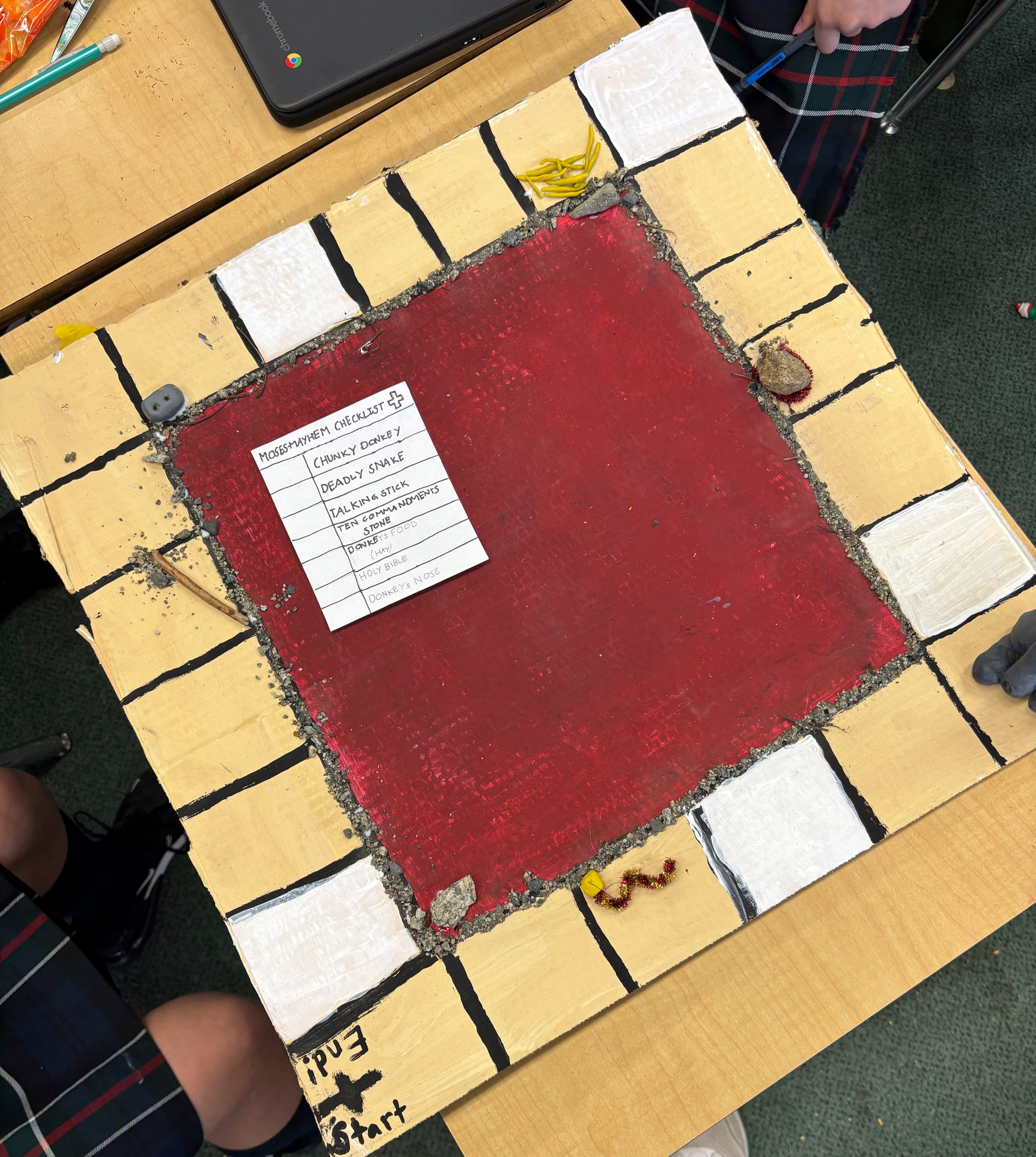
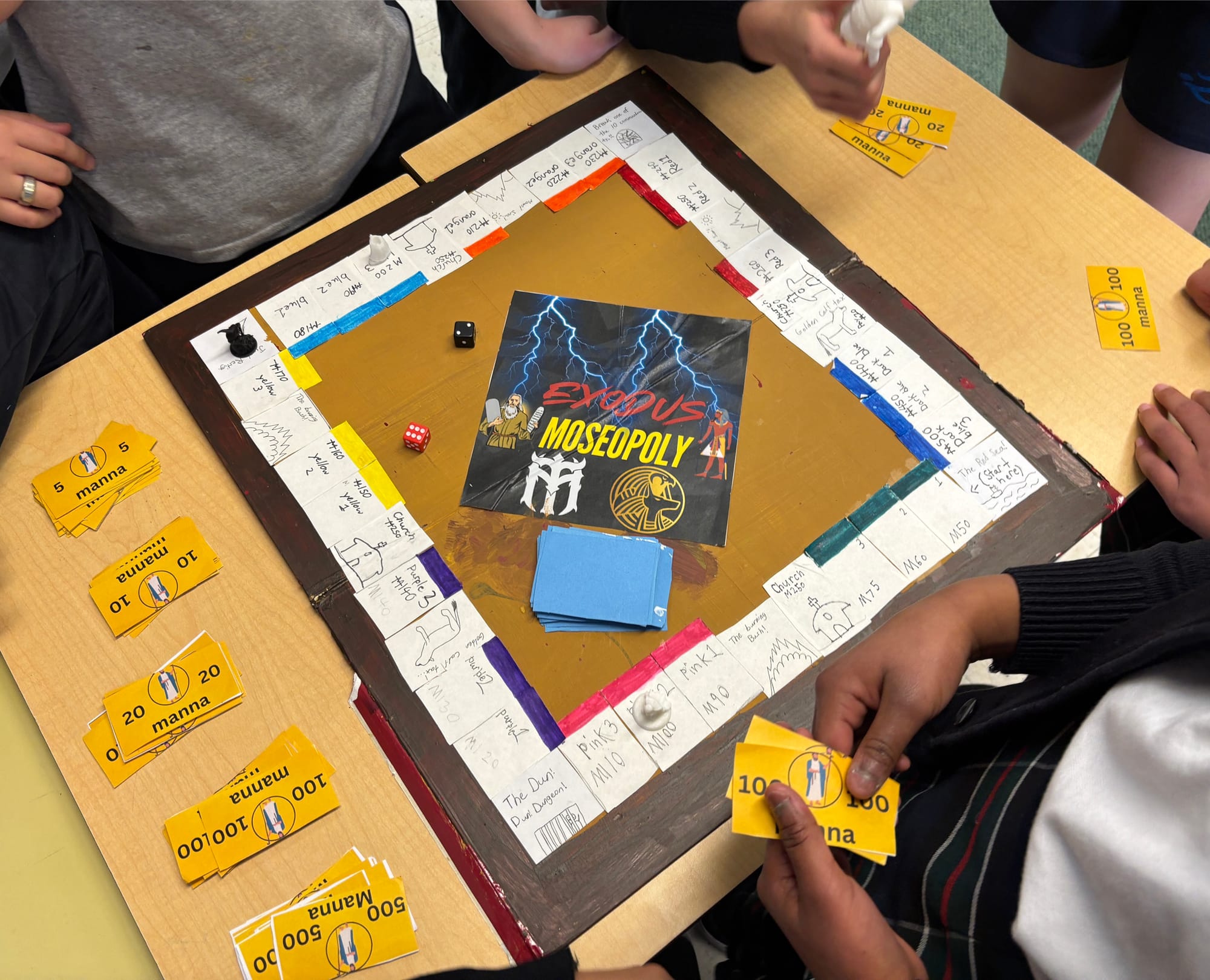
Games in Paul's class were constructed and designed from the bottom up, borrowing ideas from other games but ultimately unique!
🎤 How do you think designing a board game connects to other areas of the curriculum beyond Christian Education?
There are so many interdisciplinary connections. With a thoughtful rubric and project structure, you can pull in elements from multiple subjects. Math is a big one—especially probability and ratios—because many games involve dice rolls and calculated chances. Students naturally want to optimize their play strategies, which motivates them to understand those concepts more deeply.
Art is another big connection, especially in designing appealing boards, cards, and game pieces. They had to think about aesthetics, colors, materials, and visual appeal. Which all tied beautifully into the arts curriculum.
There’s also a strong link to Language Arts through the instructional writing component. Students had to write clear, understandable rules so others could play the game without their guidance. That involved critical thinking, editing, and revising, just like good writing does.
And of course, there’s a major social-emotional piece: collaboration. Working in groups to design a game meant negotiating ideas, dividing tasks, and problem-solving together—all of which are key competencies in our curriculum. So in the end, the project touched Math, Art, English Language Arts, Social-Emotional learning, and, naturally, Christian Education.
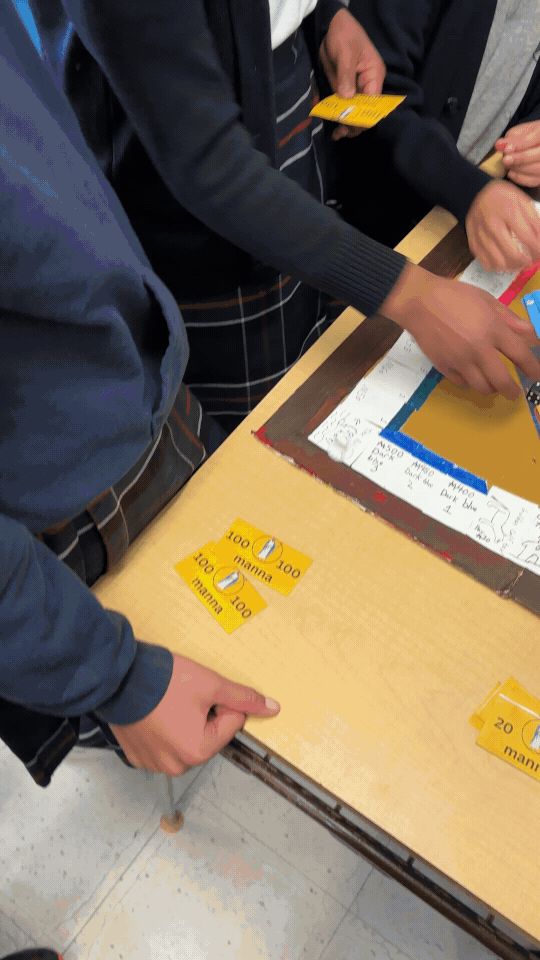
🎤 What skills are students developing while creating their board games, and were there any emerged unexpectedly?
Initially, I was targeting collaboration, creative design, and immersion. Specifically, I wanted students to create a game that felt connected to Exodus. They had to take important elements—like the Ten Plagues, the Burning Bush, Moses and Pharaoh—and transform them into game mechanics. It pushed them to think critically: how do you take a story event and build it into a rule or challenge that feels natural to gameplay?
One skill that emerged unexpectedly was resiliency. Throughout the design and especially the playtesting phase, students often realized parts of their game were broken—whether it was an unwinnable setup or mechanics that didn’t function the way they expected. They had to go back to the drawing board, revise, and try again. It was frustrating for them at times, but incredibly valuable. They learned that iteration is a normal, necessary part of the creative process. The goal wasn’t just to finish, it was to make something playable and enjoyable.
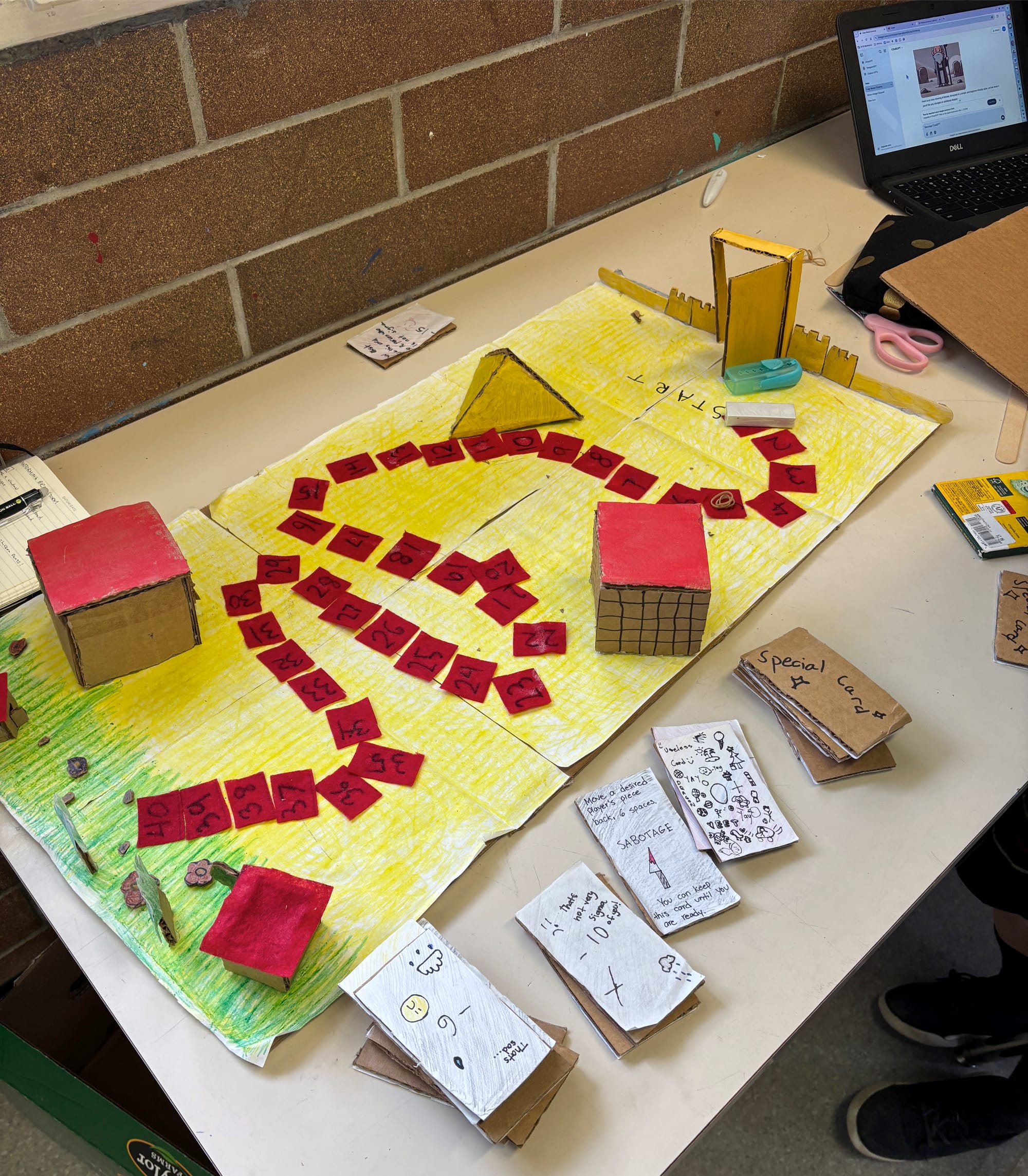
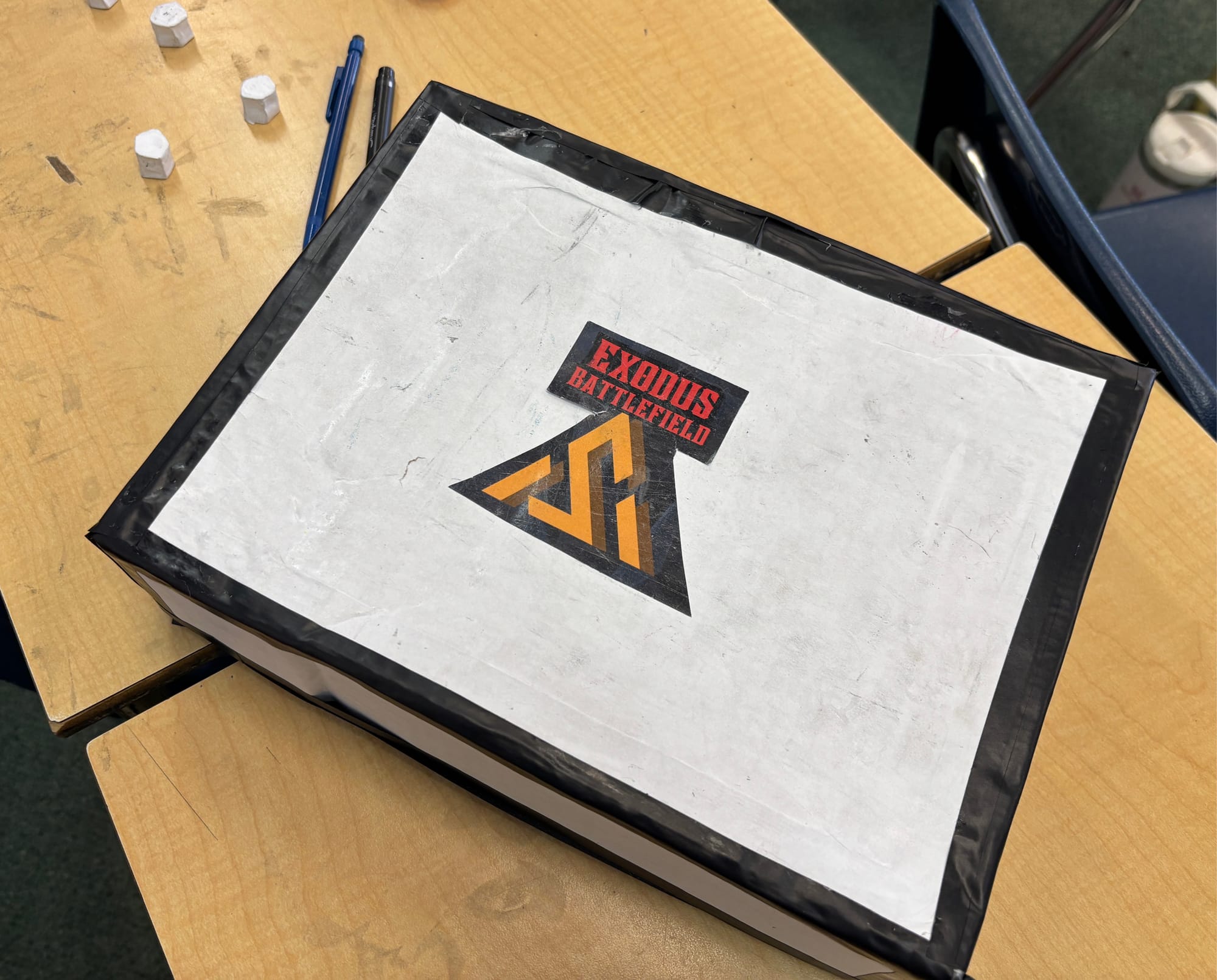
Game elements were custom made—including cards, game board details and the boxes they were stored in.
“I learned how fun and also hard it is making a board game, and that teamwork is very important in projects like these.”
“the hardest part of making the game was coming up with creative rules.”
🎤 How did you guide students through that process of revising and improving their games?
Setting expectations upfront was crucial. Early on, I made it very clear: you will need to revise. There will be multiple rounds of playtesting—with me, with other teachers, with classmates—and feedback will be part of the process. I’ve learned from previous years that when students know revisions are expected, they’re less frustrated by it. It feels like part of the journey, not a sign of failure.
During playtesting, we emphasized giving useful feedback: it had to be specific, actionable, and constructive. We used a “two stars and a wish” model so students were encouraged to recognize both strengths and areas for growth. After collecting several rounds of feedback, groups had to assess: What’s consistent across testers? What problems were mentioned repeatedly? Then, they had to collaborate and decide how to address it—often trying multiple solutions before landing on the best one. It was a powerful learning experience.
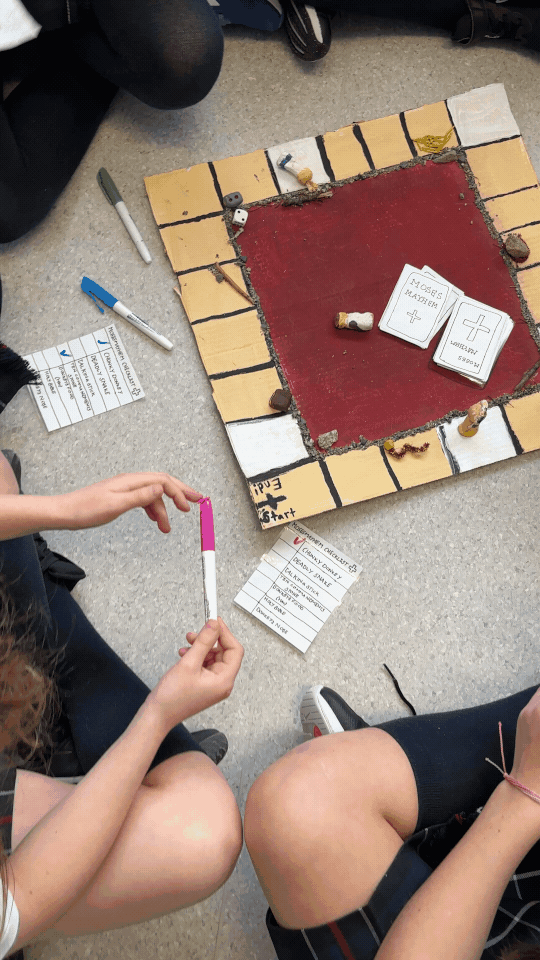
🎤 What was their understanding of board games before and after the project? Did their perceptions change?
At the start, most students had some experience with board games, though not all of them were particularly enthusiastic about them. A few self-identified as "not really board game people." But I approached that by offering a lot of flexibility. I encouraged students to customize the project to their interests—for example, one student who loved the party game "Mafia" adapted that style into an Exodus-themed version. Giving them creative freedom helped even reluctant students find a way into the project.
By the end, I think a lot of students had a new appreciation for the complexity behind board games. They realized it’s not just about making a colorful board and rolling dice; it’s about crafting balanced mechanics, writing clear instructions, thinking about how people will interact with the game. It deepened their respect for design work—and for storytelling too.
🎤 What do you hope students take away from this experience beyond just creating a finished game?
Ultimately, I hope they walk away with a stronger connection to the core messages of Exodus—not just memorizing the plagues or listing characters, but really internalizing the major themes: liberation, faith, perseverance. I want them to see the broader biblical story and how it foreshadows later Christian narratives, like the life of Jesus.
More generally, I want them to take away skills that will serve them beyond this project: collaboration, creativity, problem-solving, resilience, and reflective thinking. I hope that in the future, when they encounter Exodus—whether in Mass, another class, or just in life—they’ll remember the work they did here and how they made those themes come alive through their own creativity.
🎤 Was there a moment during this project that made you feel especially proud?
Absolutely. This year, I was incredibly proud of how organized and committed the students were. Compared to previous years, there were far fewer major issues with games that didn’t function. Students came in with strong plans, stuck to them, and made thoughtful revisions when needed. They showed maturity and ownership of their work.
It really felt like all the design processes they had experienced in past projects—whether podcasts, websites, or something else—prepared them to handle this complex project with confidence. Seeing that growth, and seeing how polished and playable the final games were, was a really rewarding moment as a teacher.
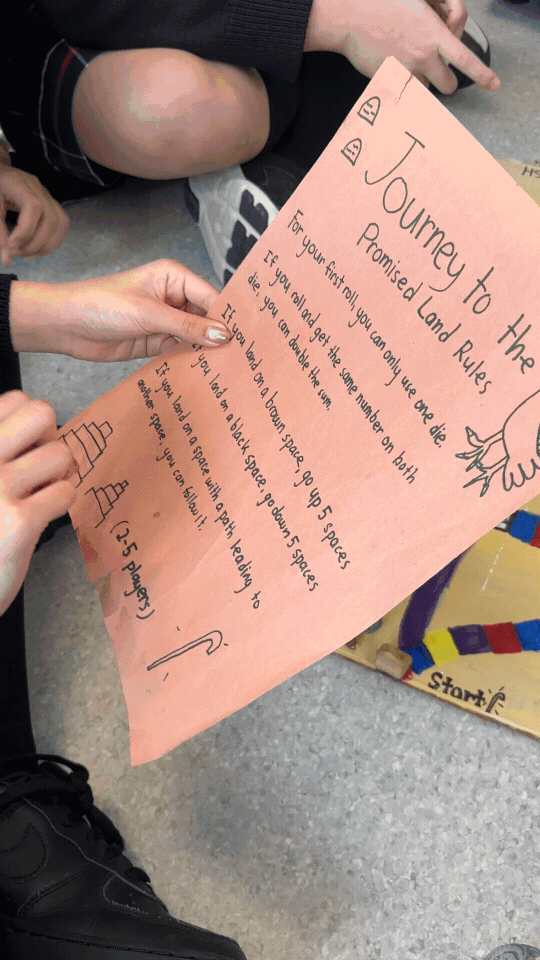
“Keep it simple. Please. My game was way too complicated.”
Boardgames as Learning
These weren’t just games—they were teamwork bootcamps, theological explorations, and creativity labs rolled into one. By bringing Exodus to life in tangible, playful ways, students didn’t just learn the story… they lived it. As Paul shared, it was about embracing iteration, honoring story, and building something meaningful together.
Classmate Recommends Boardgames
We've played a lot of board games as a team. Here's some of our favourites.
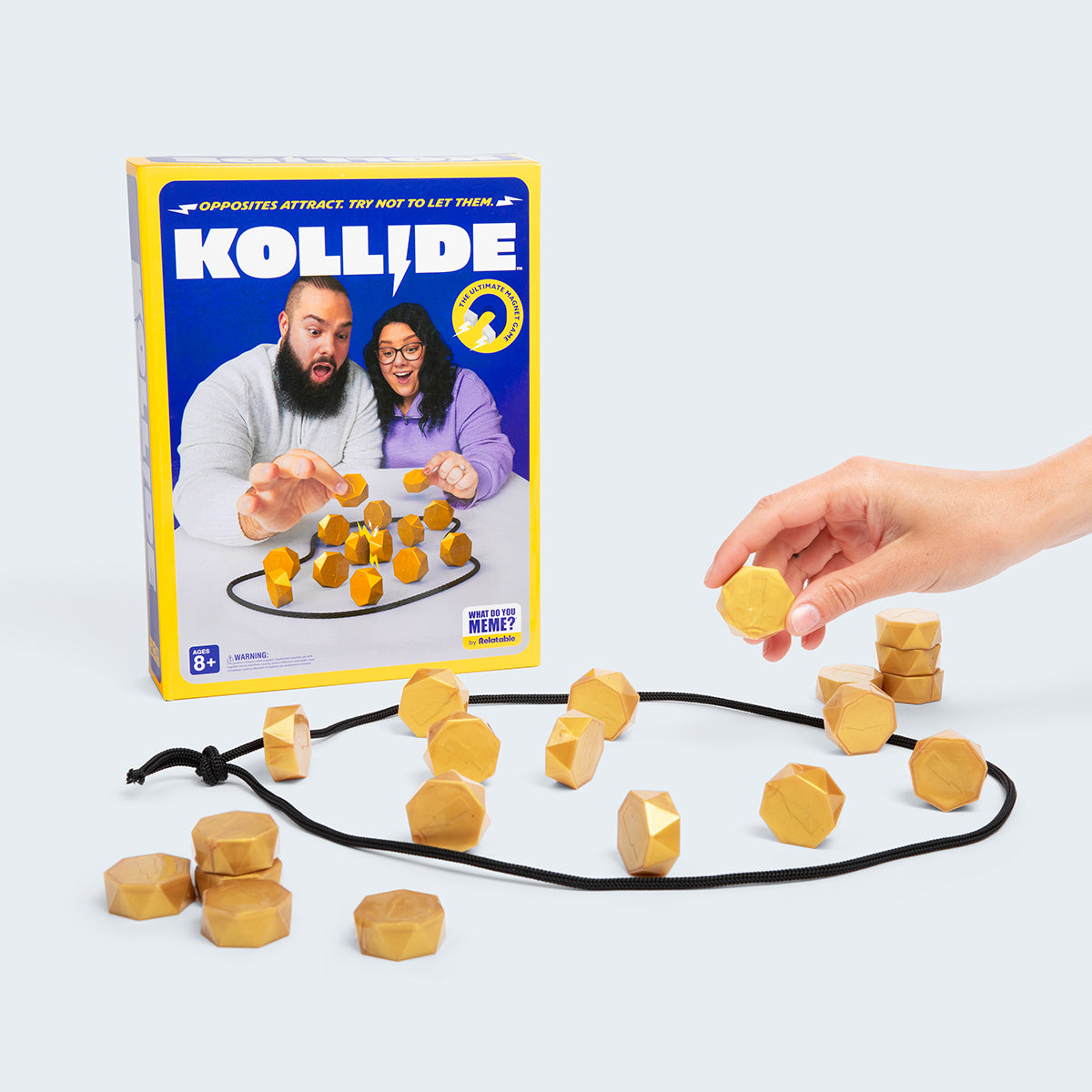
A casual game to play while chatting with friends. Magnets!
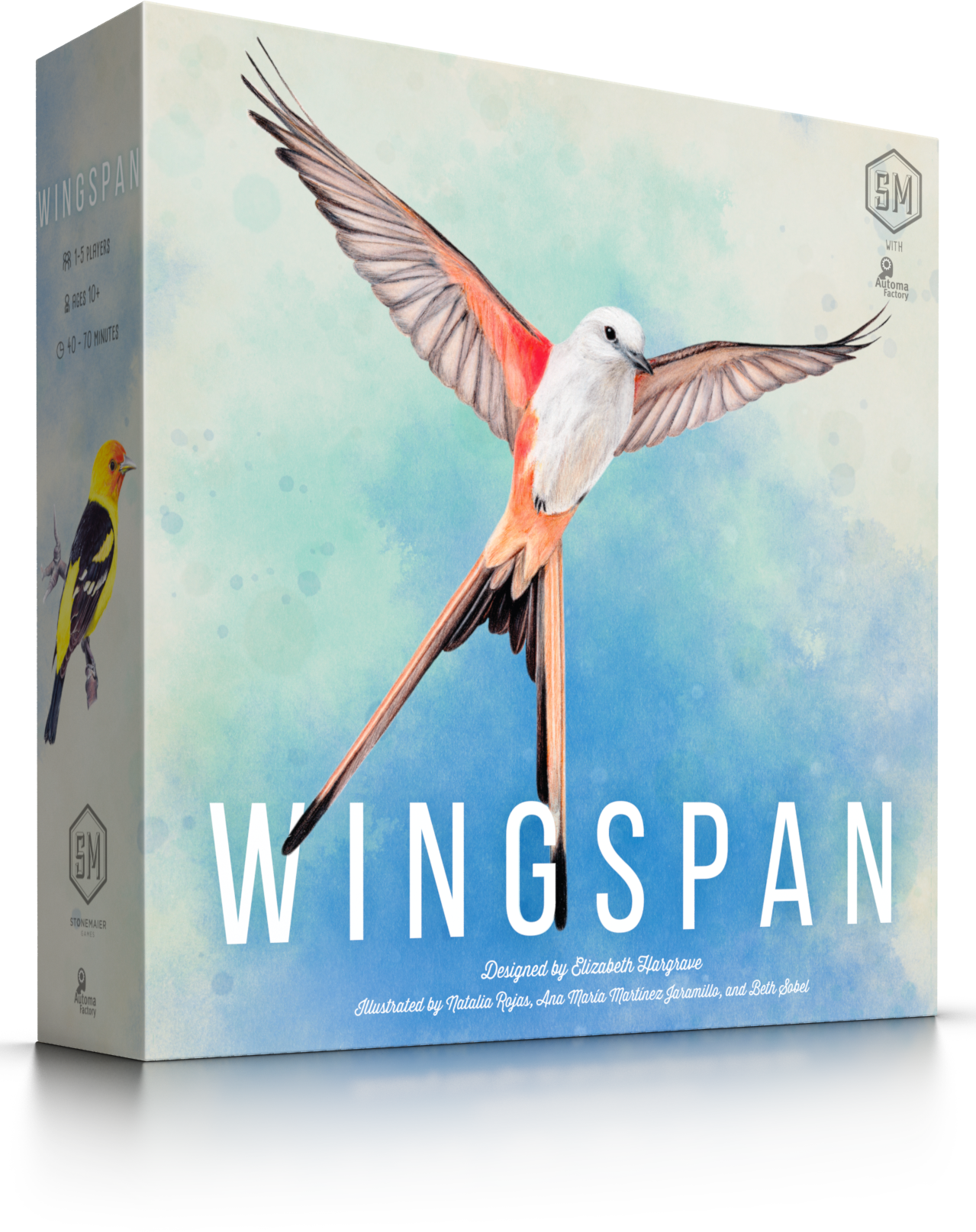
A lovely game that's just as fun to look at as it is to play. Bird Facts!
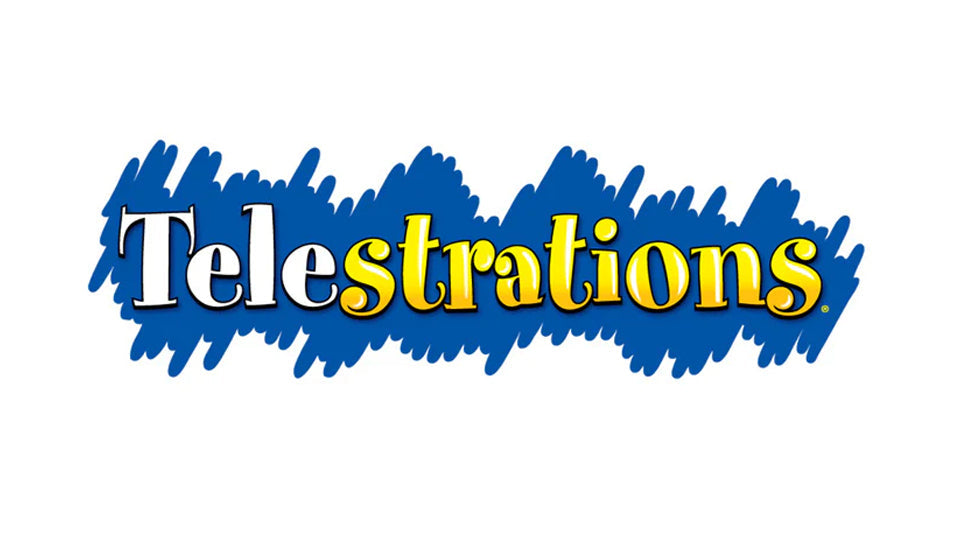
Hilarious drawing game for larger groups. Party game!




